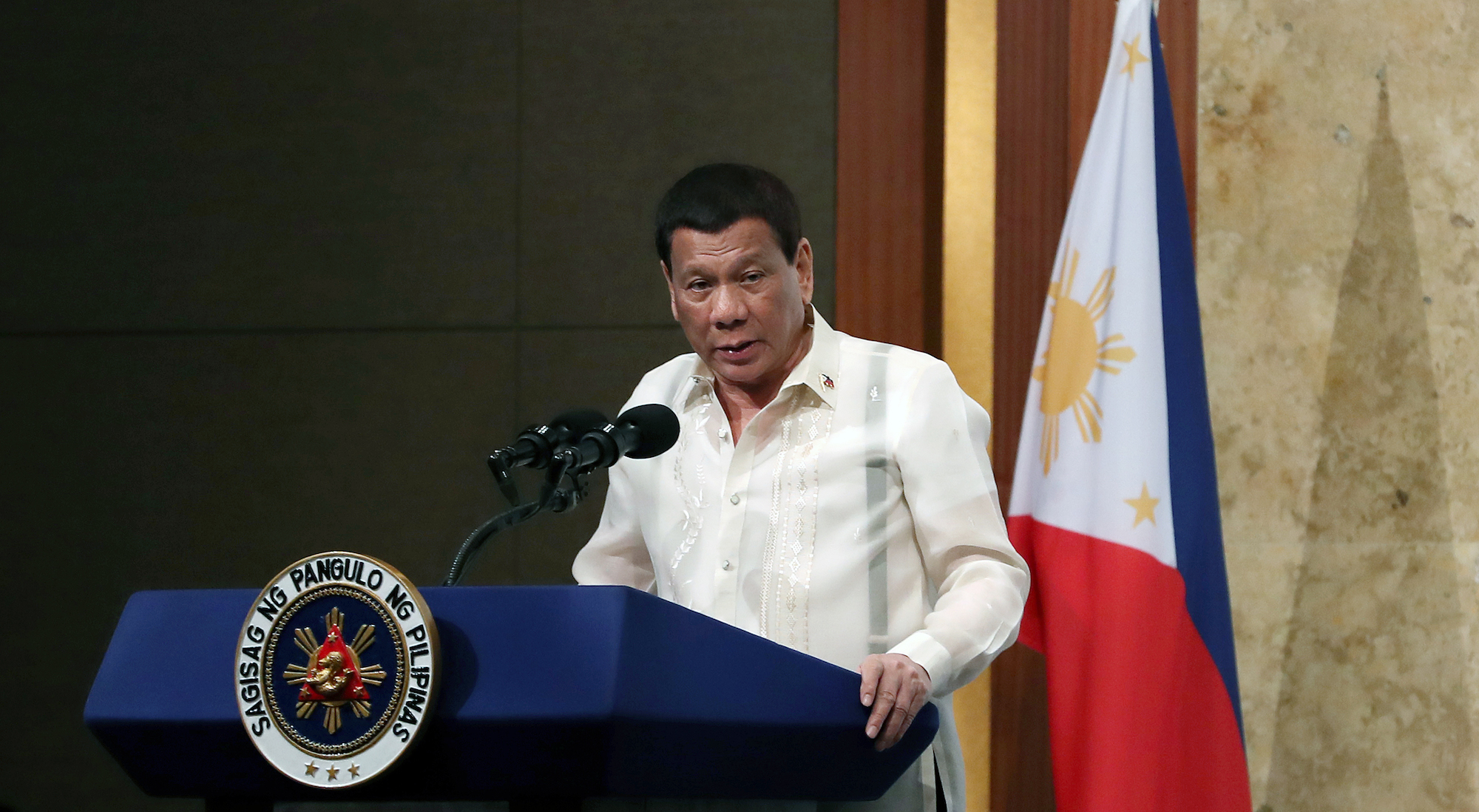Within a month of shutting down the country’s largest news network, Philippine legislators passed an anti-terror law that human rights groups said challenges freedom of speech.
President Rodrigo Duterte signed The Anti-Terrorism Act of 2020 on July 3. The law went into effect on July 18. It replaced the existing Human Security Act of 2007 in an effort to “plug its loopholes” and grant police and military forces more leeway in detaining terrorism suspects, according to Al Jazeera.
Despite local and international calls for its repeal, the bill enables a vague definition of terrorism that permits warrantless arrests and prolongs detainment without charge, according to The New York Times.
“Under Duterte’s presidency, even the mildest government critics can be labelled terrorists,” said Nicholas Bequelin, the Asia-Pacific regional director for Amnesty International. “In the prevailing climate of impunity, a law so vague on the definition of ‘terrorism’ can only worsen attacks against human rights defenders.”
Articles from the law extend its reach beyond combating Islamic militancy. According to legal experts, the law allows discriminatory enforcement, privacy infringements and suppression of peaceful dissent, including on social media, as reported by Al Jazeera. A petition against the bill circulated on social media prior to the bill’s passing.
11 petitions against the law have been filed to the Supreme Court, most recently by former Supreme Court justices Antonio Carpio and Conchita Carpio-Morales.
“Government agents have erroneously invoked the Anti-Terrorism Act (ATA) to support attempts to suppress dissent and disapproval, or claimed more powers than the ATA actually grants,” said Jay Batongbacal, a petitioner against ATA and Director for the University of the Philippines’ Institute for Maritime Affairs and Law of the Sea.
Human Rights Watch said the new law gives security forces the power to arrest activists, journalists and social media users by simply saying they are suspected of terrorist activities, according to The New York Times.
The law’s suppression of the media comes after Duterte’s allies voted 70-11 against a 25-year extension of the license of Philippine’s largest TV network, ABS-CBN. They claimed it was “undeserving of the grant of legislative franchise.”
The July 10 vote cited several issues, among them tax delinquencies and the citizenship of Eugenio “Gabby” Lopez III, the network’s chairperson emeritus. Investigations showed ABS-CBN had no tax delinquencies and Lopez told lawmakers he had not sworn allegiance to the United States, nor renounced his Philippine citizenship.
“The shutdown has deprived more than 69 million Filipinos of the kind of information, analysis and commentary and public service provided by ABS-CBN News,” said Ging Reyes, ABS-CBN News and current affairs chief.
Former president Ferdinand Marcos’ declaration of martial law previously took the network off air in 1972. It resumed operations in 1986.
Duterte’s government shut down the network on May 4 when its congressional franchise expired, directly followed by a cease-and-desist order the next day from the National Telecommunications Commission (NTC).
“This is ABS-CBN Corporation Channel 2. In the service of the Filipino. Now signing off,” read its sign-off message.
Duterte repeatedly voiced his desire to close the network, in part because of its refusal to run his campaign advertisements.
“I will see to it that you are out,” Duterte said during a swearing-in ceremony in November 2019.
Jose Calida, the government’s solicitor general, also actively sought to revoke ABS-CBN’s license, threatening to charge NTC with graft atop of accusing the network to be in violation of the constitutional prohibition against foreign investors gaining ownership of Philippine media.
ABS-CBN denied the allegations by Duterte and Calida.
The Duterte administration is no stranger to utilizing the law against its critics. Rappler, a Philippine news site, gained traction for being openly critical of Duterte’s government. It ran multiple reports on Duterte’s war on drugs, leading his supporters to regard the site as a hub of “fake news.”
Rappler also amassed a number of cases filed against it and even saw its reporters banned from covering the president’s events.
According to The New York Times, Rappler CEO Maria Ressa is at the forefront of defending press freedoms.
Ressa, one of TIME’s “guardians of truth,” was convicted of cyber libel and found guilty on June 15. After posting bail pending appeal, she could be facing a sentence of six years in prison.
Her conviction stems from Rappler’s 2012 story alleging ties between Philippine businessman Wilfredo D. Keng and a high court judge.
Previously arrested for cyber libel early last year, Ressa was released on bail after a night in detention, according to CNN Along with former Rappler reporter Reynaldo Santos Jr, the two are the first to be convicted of the charge.
“We will keep fighting,” Ressa said. “We are going to stand up against any kind of attacks against press freedom.”
Several international media groups launched the #HoldTheLine campaign to support Ressa and independent media in the country. Its namesake comes from Ressa’s prior call to “hold the line” in defense of the charges against her.
Filipinos continue to protest nationwide against the anti-terror law and press suppression, according to Rappler.






